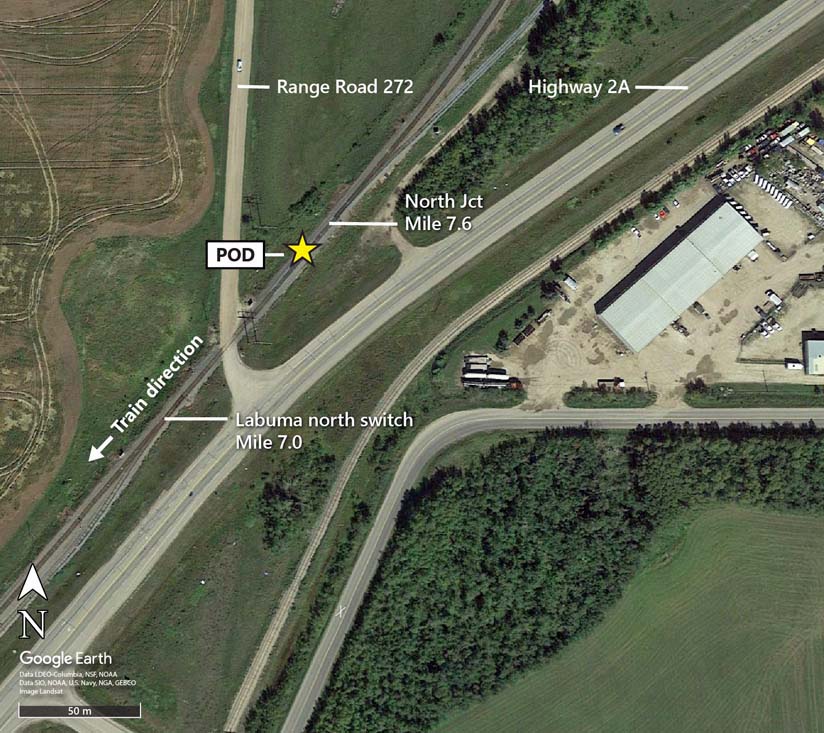
Blackfalds Alberta - A 2019 train derailment in central Alberta that spilled more than 295,000 litres of flammable fuels underlines the
need for sturdier tank cars, the TSB said in Investigation Report R19E0147 issued Monday.
issued Monday.
The 75 car mixed freight train operated by CP was travelling south near Blackfalds on 27 Sep 2019 when an undetected transverse detail fracture in the rail
caused the track to break up under the train.
Nine tank cars, carrying diesel fuel, jet fuel, and octanes derailed.
Two cars carrying diesel fuel and one of the octane-loaded cars leaked.
There were no injuries, and no fire resulted from the derailment, which happened just north of the Range Road 272 crossing, the TSB said in its investigation
report.
"While only three cars lost product, there was potential for more catastrophic consequences," the report said.
The TC-111 tank cars all met current safety standards and were well-maintained.
Regulations coming into effect in May 2025 will require all Class 3 flammable liquids to be transported in more robust TC-117 tank cars.
Those regulations stem directly from the 2013 rail disaster in Lake Megantic in which 47 people were killed when a freight train derailed, resulting in fires,
explosions, and the release of about six million litres of crude oil.
The TSB report found CP did extensive rail improvements in the area in 2018, but the track where the derailment occurred was not part of that
upgrade.
The report also noted that the frequency of rail testing and inspections by CP "exceeded regulatory requirements," with the most recent ultrasonic
testing completed 30 days before the incident.
"Ultrasonic testing has proven to be a reliable, efficient, and effective method to test rail, but it has limitations," the report
said.
"Detail fractures cannot always be detected or identified because of their orientation in relation to the surface of the rail, or because they are masked
by rail surface contamination, or defects above the detail fracture."
A transverse detail fracture is classed among a group of fatigue defects in which the plane of the crack is perpendicular to the running direction of the rail,
said the report.
In 2019, there were more than 111,000 car loads of dangerous goods transported along CP's Leduc Subdivision between Edmonton and Red Deer.
Author unknown.
(there was no image with original article)
(usually because it's been seen before)
provisions in Section 29 of the Canadian
Copyright Modernization Act.

